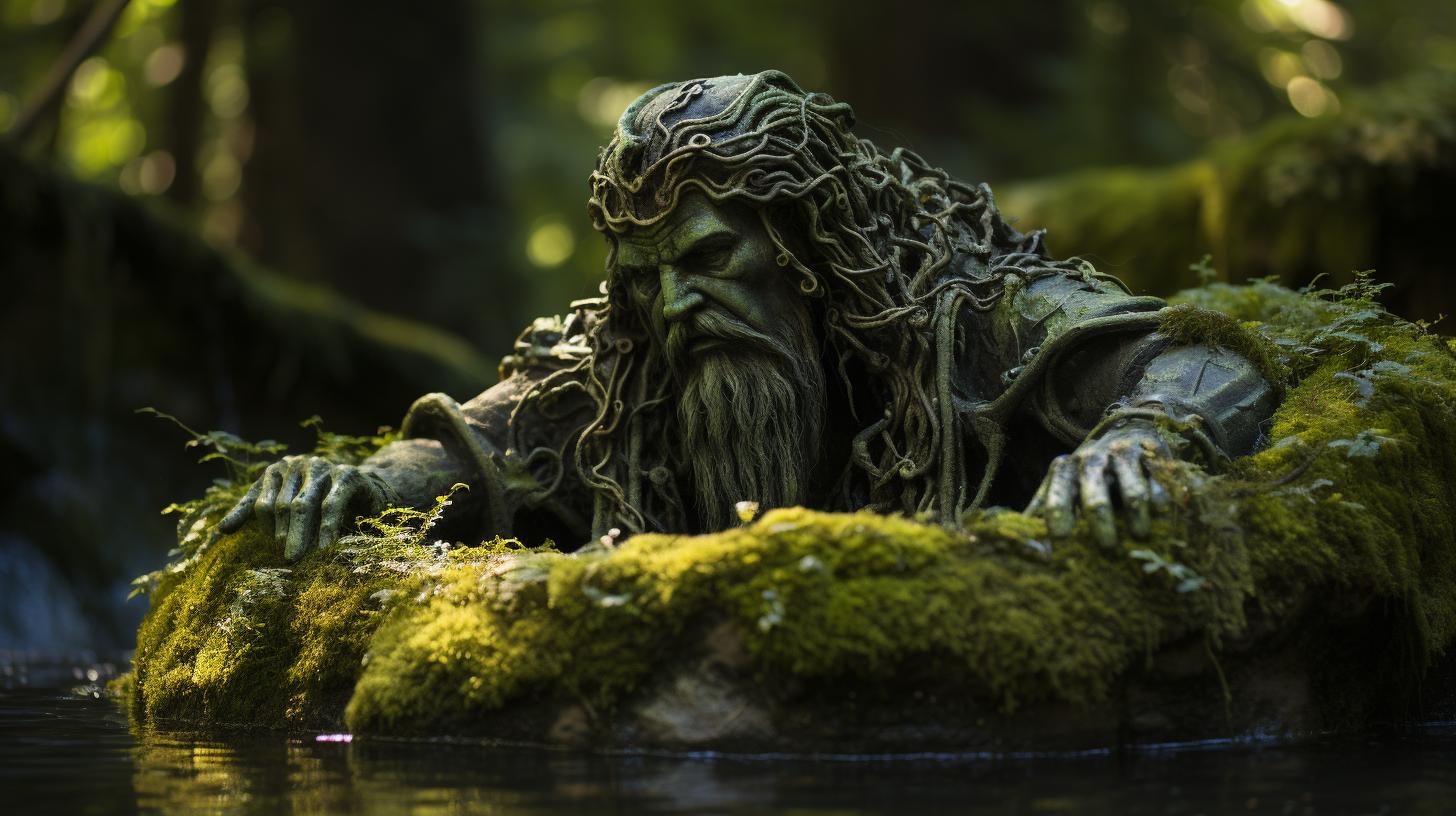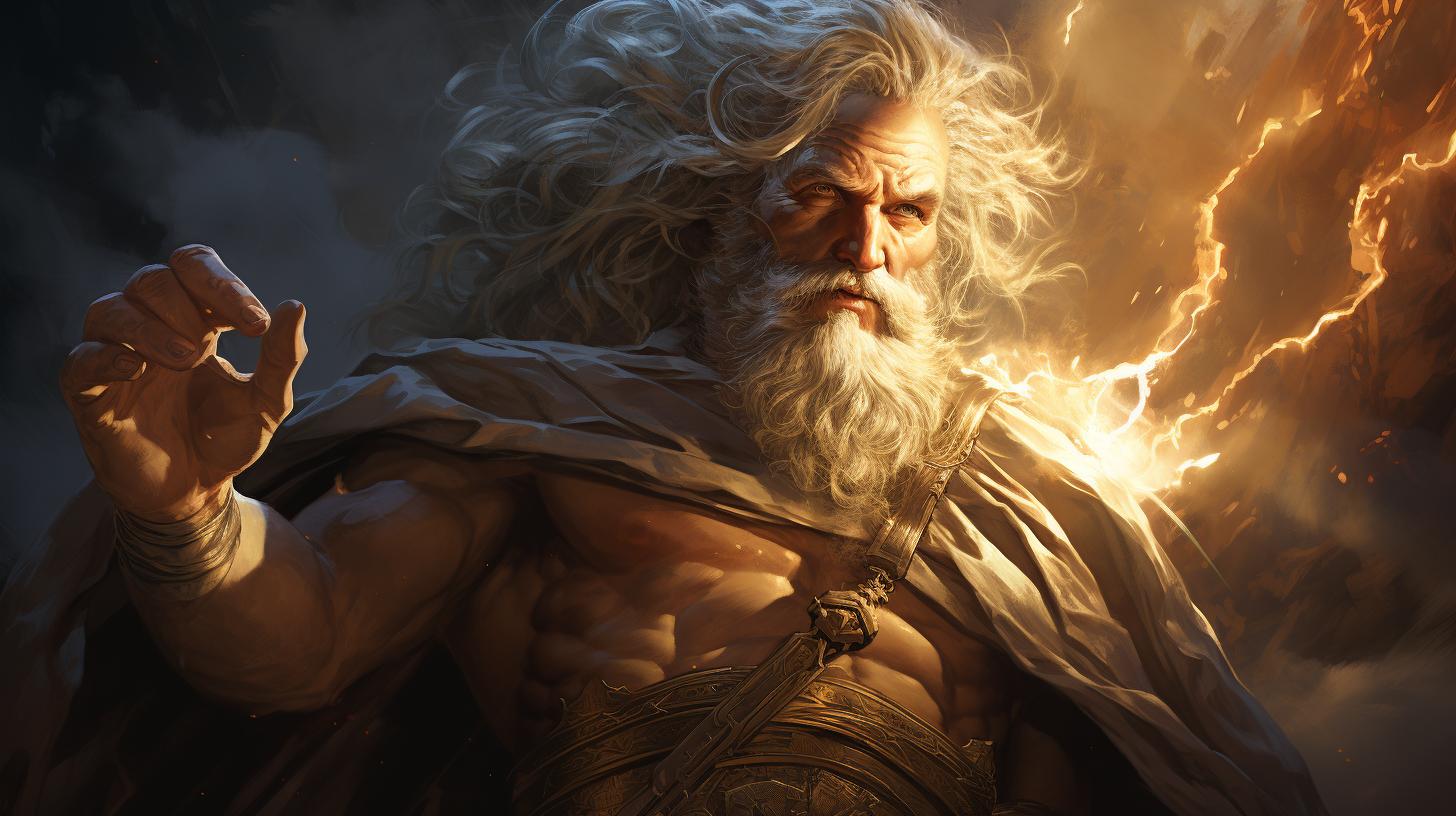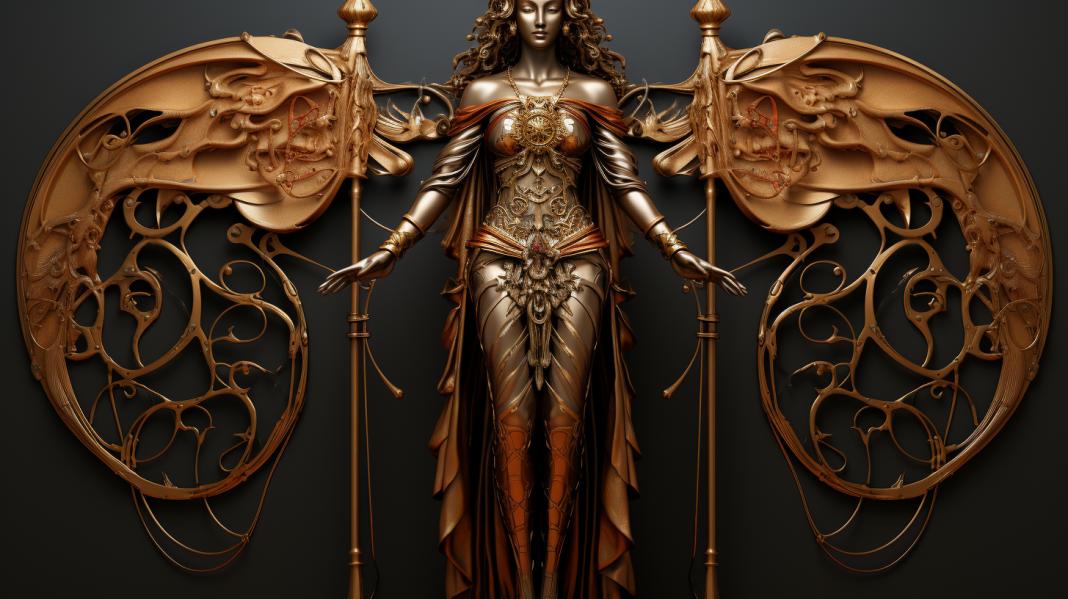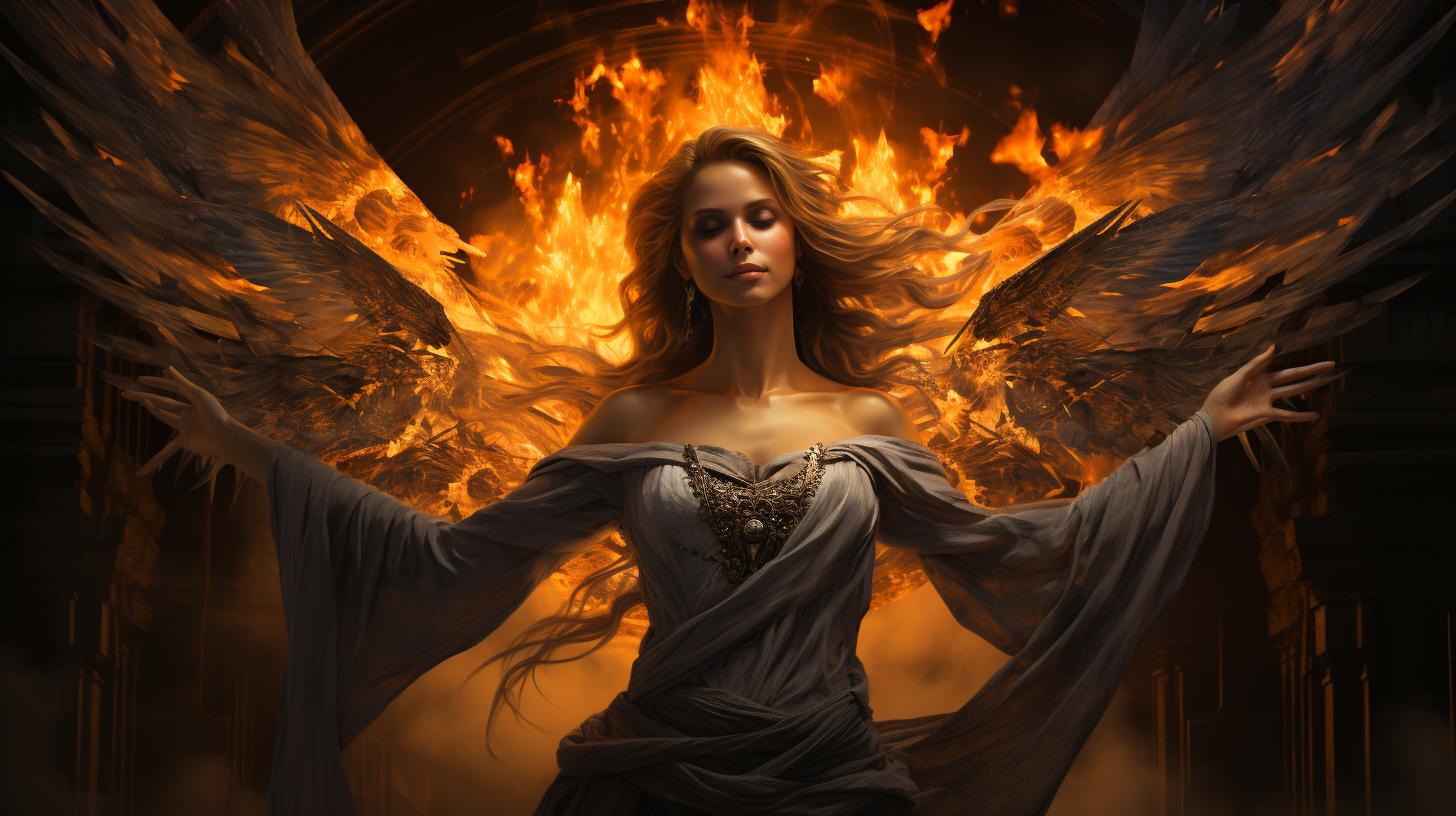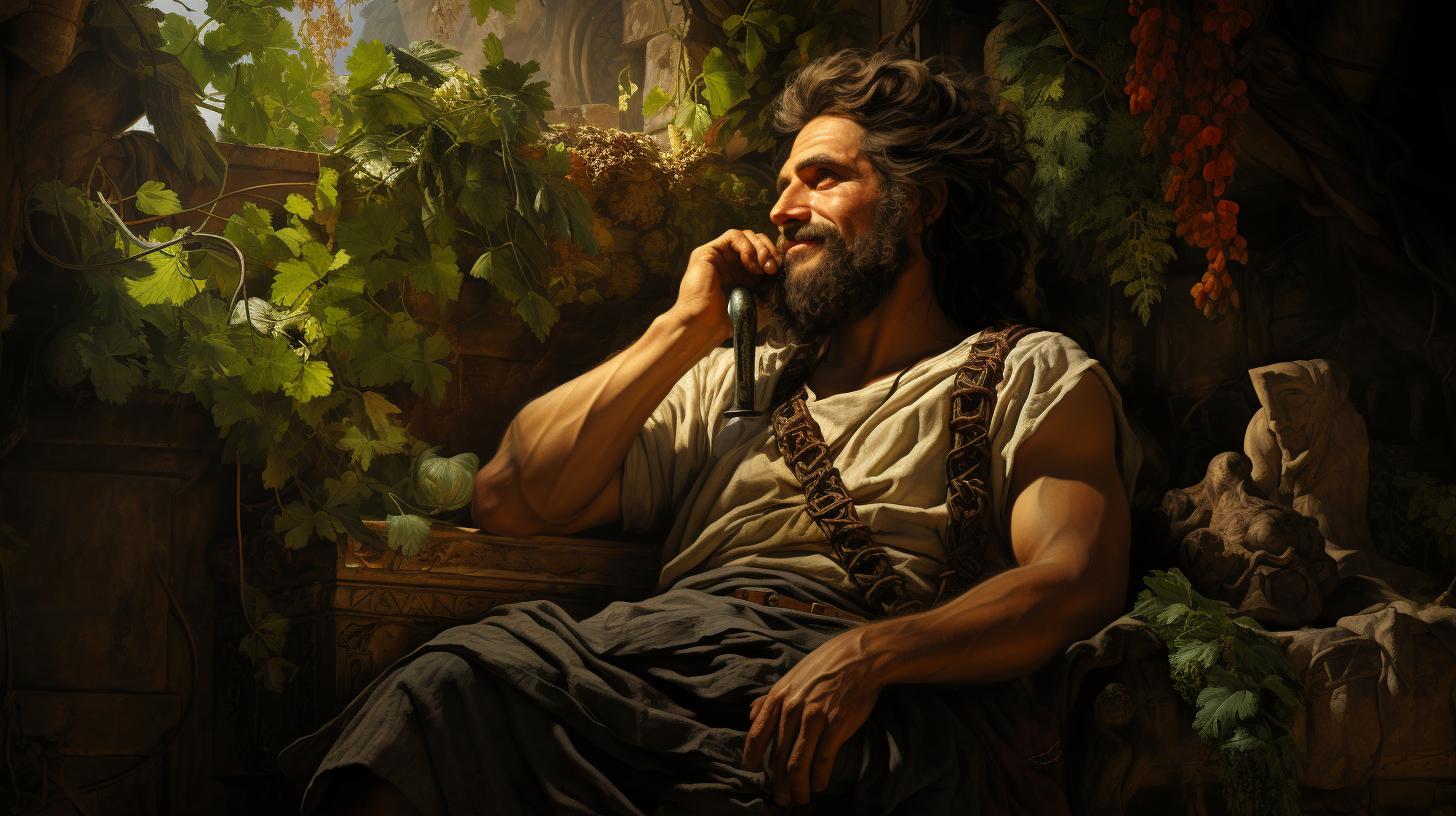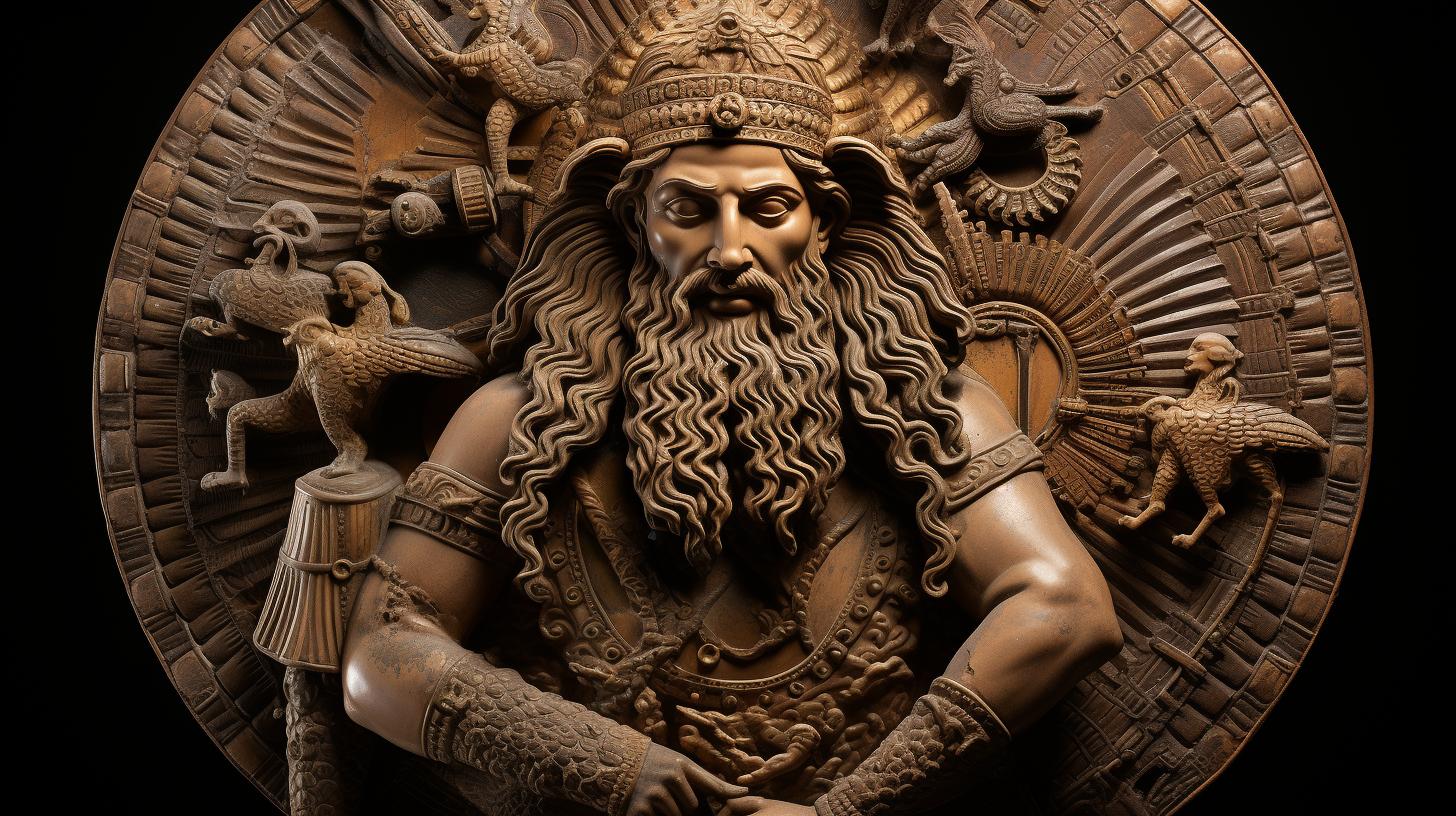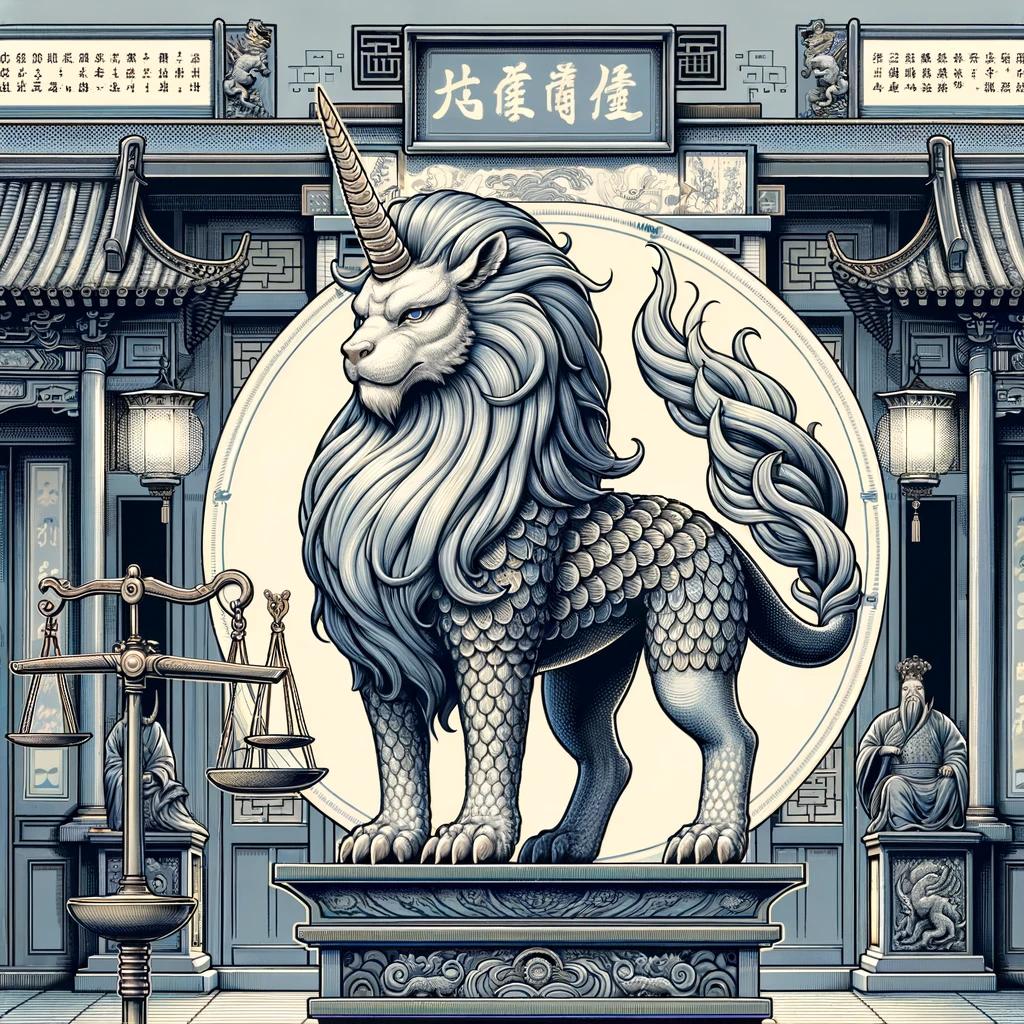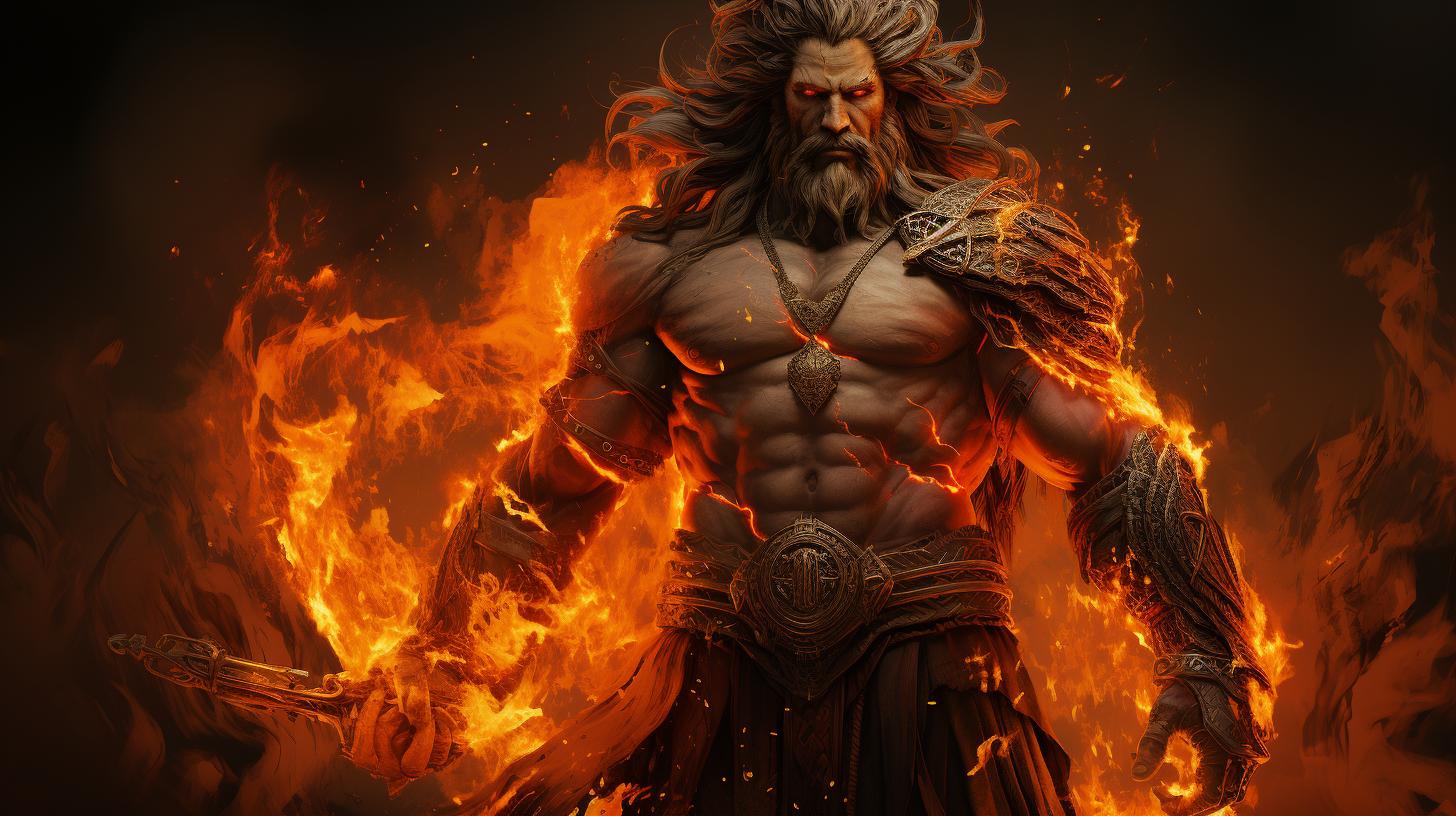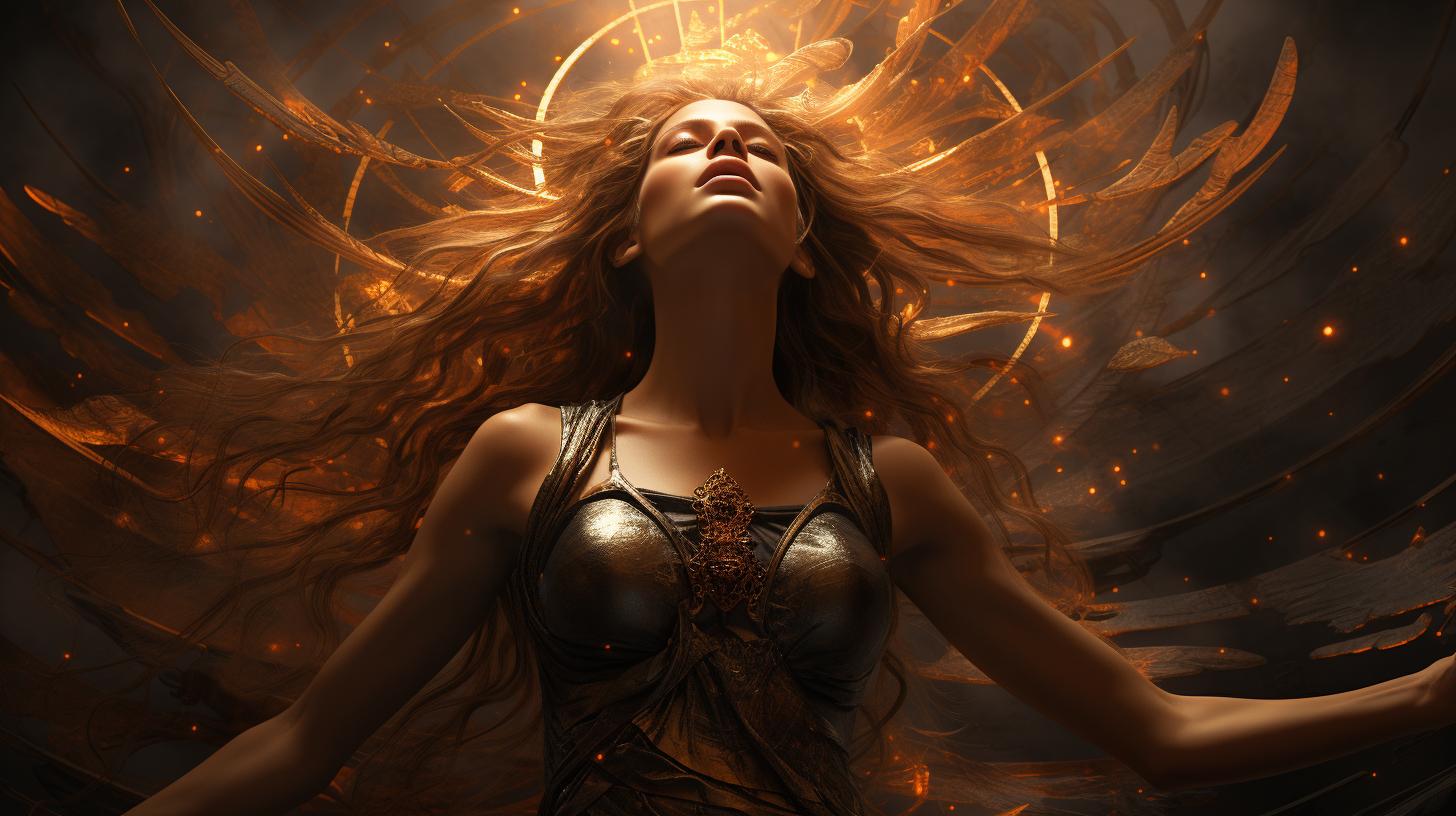Etruscan God Nethuns: Discover the Powerful Deity of Ancient Italy
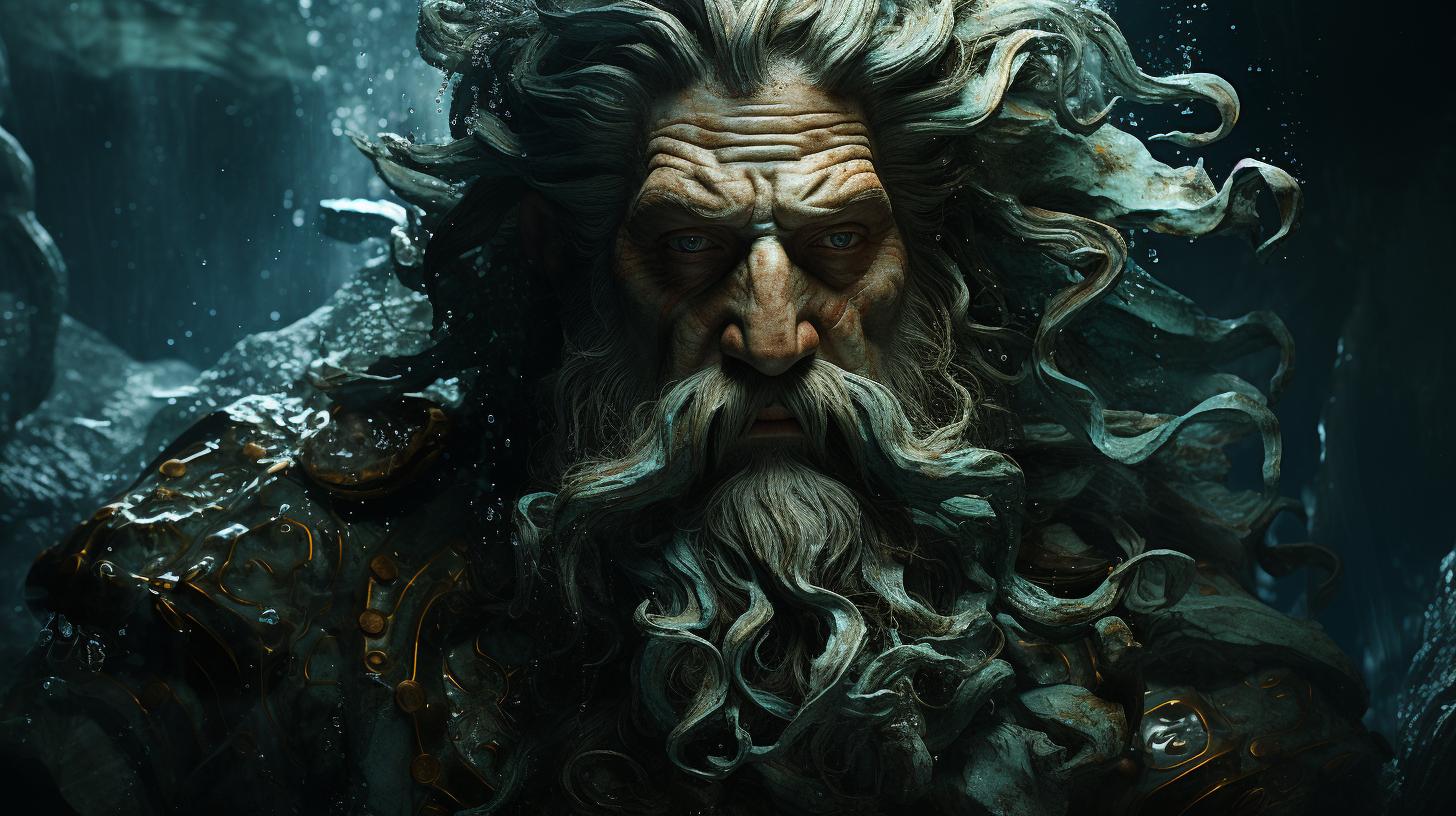
Nethuns, the Etruscan god of water, played a significant role in ancient Italian mythology. With origins rooted in the deity Nechtan, Nethuns held dominion over wells and expanded his influence to all forms of water.
Depicted with a serpent headdress and holding a trident between two dolphins, he symbolized power and control over the seas. In this article, we will explore the origins, attributes, worship, and cultural significance of Nethuns in Etruscan society, comparing him to other ancient deities.
Join us on this journey deep into Etruscan mythology and the intriguing world of Nethuns.
Origins and Attributes of Nethuns
Etruscan god Nethuns holds a significant place in ancient Italian mythology. This section explores the mythological origins, symbols and representations, as well as the role and powers associated with Nethuns in Etruscan mythology.
The Mythological Origins of Nethuns
Nethuns’ mythological origins trace back to the ancient Etruscan civilization. While his specific origin story remains elusive, Nethuns is believed to have ancient links to the Celtic deity Nechtan and other gods with the name Apam Napat.
Symbols and Representations of Nethuns
In depicting Nethuns, he is often portrayed wearing a headdress adorned with a sea serpent, signifying his dominion over water. Additionally, Nethuns is commonly depicted holding a trident between two dolphins, symbolizing his power and control over the sea.
Role and Powers of Nethuns in Etruscan Mythology
Nethuns held a crucial role as the god of water in Etruscan mythology. Initially associated with wells, his dominion expanded to encompass all forms of water, including rivers and the sea.
Nethuns controlled the life-giving and chaotic forces of water, governing its flow, fertility, and destructive potentials.
The Etruscans revered Nethuns for his ability to ensure bountiful harvests, provide safe travels at sea, and offer protection from water-related disasters.
The diverse powers attributed to Nethuns reflect the importance of water as a vital resource for ancient civilizations and highlight the significant role of this Etruscan deity in the daily lives and beliefs of the people.
Nethuns in Comparison to Other Ancient Deities
Exploring the significance of Nethuns in Etruscan mythology involves drawing intriguing comparisons to gods from various other ancient cultures. Nethuns’ unique attributes and role find similarities and contrasts with Greek/Roman, Celtic, and Mesopotamian/Egyptian deities.
Nethuns and Greek/Roman Gods
In Greek and Roman mythology, Nethuns bears resemblances to Poseidon/Neptune, the god of the sea. Both deities hold dominion over water bodies and display trident motifs in their representations. However, Nethuns’ connection to wells and his specific Etruscan symbolism set him apart from his Greek and Roman counterparts.
Nethuns and Celtic Gods
In Celtic mythology, Nethuns finds parallels with deities associated with water and nature. Like Cernunnos, the Celtic god of fertility and nature, Nethuns embodies the power and vitality of natural elements.
Yet, Nethuns’ Etruscan origins and the specific cultural contexts distinguish him from Celtic gods.
Nethuns and Mesopotamian/Egyptian Gods
Nethuns’ association with water shares similarities with Enki/Ea, the Mesopotamian god of water and wisdom, as well as with Egyptian deities like Isis and Osiris linked to the Nile river.
Despite common themes, Nethuns’ unique attributes and distinct cultural context provide a distinct identity separate from Mesopotamian and Egyptian pantheons.
Nethuns, with his fascinating connections and divergences from other ancient deities, stands as a captivating figure in the comparative study of mythological traditions throughout history.
Cult Worship and Rituals Associated with Nethuns
Nethuns, the Etruscan god of water, held a significant place in the religious practices of ancient Etruscan society. The worship of Nethuns involved various rituals and ceremonies dedicated to honoring his power and influence over water.
Temples and Religious Practices Dedicated to Nethuns
Temples dedicated to Nethuns served as focal points for worship and religious gatherings. These sacred spaces were intricately designed, featuring architectural elements that symbolized water and its connection to Nethuns’ domain.
Worshipers would visit these temples to offer prayers, make offerings, and seek blessings from the god of water.
Religious practices associated with Nethuns involved purification rituals, usually performed with water that was believed to carry the deity’s divine essence.
Cleansing rituals were a common way for followers to purify their souls, seek healing, or attain spiritual guidance.
Religious Festivals and Ceremonies
Nethuns’ worship was also celebrated through vibrant religious festivals and ceremonies. These events were marked by elaborate processions, music, dance, and theatrical performances, all dedicated to honoring the god of water.
Religious festivals provided a sense of community and allowed worshipers to express their devotion to Nethuns collectively.
Key religious ceremonies included solemn rituals performed by priests, who acted as intermediaries between the mortal world and the divine realm.
These ceremonies aimed to maintain a harmonious relationship with Nethuns and ensure the well-being of the community. Fasting, chanting, and sacred offerings were common elements of these ceremonies.
Offerings and Sacrifices to Honor Nethuns
Offerings played an essential role in the cult worship of Nethuns.
Worshipers would present various gifts and sacrifices to appease and honor the god of water. These offerings included precious metals, coins, jewelry, pottery, and even live animals.
Animal sacrifices were prevalent in the rituals dedicated to Nethuns.
Bulls, sheep, and other animals were ritually slaughtered as offerings, symbolizing the worshipers’ gratitude and desire to establish a connection with the divine realm. These sacrifices were believed to strengthen the bond between the mortal realm and the water deity, ensuring his continued favor and protection.
Nethuns’ cult worship and rituals were central to the religious practices of the Etruscan civilization, reflecting their reverence for the power and vital role of water in their lives. Through temples, festivals, and sacrifices, the ancient Etruscans sought to establish a deep connection with Nethuns, seeking his blessings and guidance.
Nethuns in Art and Ancient Etruscan Society
Depictions of Nethuns in Etruscan Art
Nethuns, the Etruscan god of water, was often depicted in the art of ancient Etruria. Artists showcased his distinctive features, such as the serpent headdress and the trident held between two dolphins, capturing his association with the sea and his dominion over water sources.
These representations adorned various mediums, including sculptures, frescoes, and pottery. The artworks served as a visual testament to Nethuns’ importance in Etruscan religious beliefs and reflected the artistic skill and craftsmanship of the time.
Influence of Nethuns on Etruscan Society and Daily Life
Nethuns’ influence extended beyond the realm of mythology and permeated into the daily lives of Etruscan society. As the god of water, Nethuns held a significant role in agriculture, fertility, and overall well-being.
Etruscans relied heavily on the availability of water for their agriculture and economic activities. Nethuns’ worship and propitiation were integral to ensuring prosperous harvests, successful pregnancies, and overall harmonious living. His presence in the society was evident through the presence of temples, religious rituals, and festivals dedicated to honoring and appeasing him.
Legacy and Impact of Nethuns in Ancient History
The legacy of Nethuns, the Etruscan god of water, extends beyond the ancient Etruscan civilization. His influence can be observed in the art, religion, and culture of ancient Italy and neighboring regions.
Nethuns’ association with water and his role as a divine mediator between the mortal world and the realm of deities represented the importance of water in human existence. As one of the deities worshiped by the Etruscans, Nethuns contributed to the rich tapestry of ancient history and continues to inspire fascination and scholarly exploration into the interconnectedness of mythology, religion, and society.
Further Exploration of Etruscan Mythology and Gods
Embark on a journey to delve deeper into the fascinating world of Etruscan mythology and gods. Through an overview of the Etruscan pantheon, exploration of notable deities besides Nethuns, and comparisons to other ancient religions, we aim to shed light on the rich and diverse beliefs of the Etruscan civilization.
Overview of Etruscan Pantheon
- Discover the intricate web of gods and goddesses that made up the Etruscan pantheon.
- Uncover the roles and domains of various deities, providing insights into the religious beliefs and practices of the Etruscans.
- Explore the interconnectedness and hierarchies within the pantheon, reflecting the complex cosmology of the Etruscan worldview.
Notable Etruscan Deities besides Nethuns
- Learn about other significant deities worshipped by the Etruscans, each with their unique attributes and influence.
- Discover the stories and myths surrounding these gods and goddesses, shedding light on their relationship with human life and the natural world.
- Understand how these deities served different purposes within the Etruscan religious framework, from fertility and prosperity to protection and divination.
Comparisons and Similarities to Other Ancient Religions
- Explore the connections and parallels between Etruscan mythology and the belief systems of other ancient civilizations.
- Uncover shared motifs and themes, highlighting the universal human quest for meaning and understanding of the divine.
- Analyze the cultural exchanges and influences that shaped the Etruscan religious landscape, drawing comparisons to Greek, Roman, Celtic, Mesopotamian, and Egyptian mythologies.
With a comprehensive exploration of Etruscan mythology and gods, we aim to provide a nuanced understanding of this ancient civilization’s spiritual beliefs and their place within the broader tapestry of ancient religions.
.

